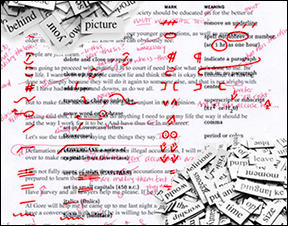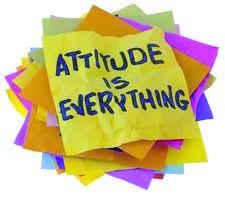 On a whim they can subject us to torture of the vilest bilge. On a fancy they can deny us the pleasure of a beautiful composition. They control what comes into the market and what remains. They are the demi-gods of the publishing industry. They are, of course, the Editors.
On a whim they can subject us to torture of the vilest bilge. On a fancy they can deny us the pleasure of a beautiful composition. They control what comes into the market and what remains. They are the demi-gods of the publishing industry. They are, of course, the Editors.
Where would the writing world be without these paragons of the paragraph? They are the proverbial woman behind the successful man, the unsung heroes of the war of words. It takes a lot to be an editor, and then some to be a great one.
Writers interact with editors on a daily basis:
- when querying,
- when speculating,
- when being profusely grateful for an acceptance.
We don’t, however, have the privilege to choose with whom we get to work. It takes all kinds to make a literary world. And editors are as varied as the rejection notes they write. But like them or loathe them, editors will be around as long as there are writers. So it is handy to develop a satchel of tricks on how to best deal with their quirks.
Here are the top five editor habits that irritate the hell out of writers and tips on how to handle them:
5. Not Wanting to Negotiate on the Money
What is it about the M-word that gets editors scuttling under cover as soon as it crops up? A freelancer who writes for a living is bound to want to discuss rights and payments and other awkward and uncomfortable things with editors. What choice do we have? Our stories and poems butter our bread. And writing is a straightforward business transaction like any other: the writer sells, the magazine buys. So why all the jaw-dropping eye-popping brow-hopping drama, like we’ve dared mention something taboo and too dreadful to contemplate? Negotiation is part and parcel of life. Mr. Editor, you should learn to anticipate it and deal with it professionally. Enough of the sudden, “Sorry, we must withdraw our offer due to business reasons we are not at liberty to discuss.” You aren’t fooling anybody.

 Negotiation is a skill few are born with. But the good news is that it can be acquired, learnt and gradually developed, and practice makes perfect. There are a variety of reasons why editors will not negotiate on payment. They may not have the authority to vary their magazine’s stock payment policy and may have someone else to answer to. Or perhaps you are pitching way outside your league, demanding a figure that is far above an industry standard. Whatever the reason, you can usually tell within two attempts which way the deal will swing. So try your best to bargain by ascertaining the actual reason for refusal, but don’t come across as too pushy and do know when to back down. Graciously. No shouting, arguing or embarrassing the editor. Your actions may come back to haunt you.
Negotiation is a skill few are born with. But the good news is that it can be acquired, learnt and gradually developed, and practice makes perfect. There are a variety of reasons why editors will not negotiate on payment. They may not have the authority to vary their magazine’s stock payment policy and may have someone else to answer to. Or perhaps you are pitching way outside your league, demanding a figure that is far above an industry standard. Whatever the reason, you can usually tell within two attempts which way the deal will swing. So try your best to bargain by ascertaining the actual reason for refusal, but don’t come across as too pushy and do know when to back down. Graciously. No shouting, arguing or embarrassing the editor. Your actions may come back to haunt you.
4. Being Rude
Nothing, but nothing, gives anyone the right to be rude. And it is downright silly to try and mask rudeness as “honesty.” One can easily be honest and tactful at the same time. Magazines need writers just as writers need magazines. Writers and editors both deserve to be treated with dignity and both should conduct business in a mutually respectful manner. But some editors feel that being in the power seat gives them the right to treat writers as poorly as they like. Abrupt replies at the pretext of “not having time,” humiliating feedback under the garb of “constructive criticism” and downright hostility will turn away a promising contributor as surely as an eye from blinding light. From childhood we are all schooled to be polite; more so writers when it comes to temperamental editors. However, no one seems to have taught the editors to do unto others as they would have others do unto them. Mr. Editor, if you lose your cool, then you lose control. You have only yourself to blame.

 If the rudeness gets out of hand, you can try contacting their supervisor to complain. If it is a big publication, it may have a formal grievance redressal procedure in place that you could resort to.
If the rudeness gets out of hand, you can try contacting their supervisor to complain. If it is a big publication, it may have a formal grievance redressal procedure in place that you could resort to.
However, the best recourse is to take a few deep breaths and ignore them. Yes, really. Making a big fuss and getting into a slinging match will not benefit anybody. Time heals tempers. Over the years you will develop a thick enough skin to not let the barbs bother you anymore.
3. Excessive Copy-Editing
Writers are hardly the last word in editing. We’ve “maid” our “fare” share of mistakes, if you “no” what I mean. Most writers have had some experience of working with supremely competent copy-editors who polish work until it gleams, to be comfortable enough to put our faith in them and our masterpieces in their hands. However, there are some copy-editors who think it is their paramount duty to edit the story until it morphs into something so different from the original as to be utterly unrecognizable. They yearn to edit. They edit to earn (their salaries). They think that unless whatever was making the story good in the first place—be it technical execution of language, a unique voice or a knack for twists—is removed at once, they can’t justify getting their wages as a real “editor.” So they keep at it until the essence of the story changes completely. The word “enough” seems to be absent from their dictionary. Pretty soon, all features start sounding the same. The individual style is irrevocably lost. (Now you know why that entire magazine reads like it has been written by one person!)

 First, try to analyze why they have edited the way they have. Was your style of writing widely at odds with the in-house style? Was your story too long for their normal word-limits to work without drastic slashing? Did you pay specific attention to your grammar and sentence construction? Did you use too many adverbs? What you earlier thought was excessive might, on reflection, turn out to be necessary.
First, try to analyze why they have edited the way they have. Was your style of writing widely at odds with the in-house style? Was your story too long for their normal word-limits to work without drastic slashing? Did you pay specific attention to your grammar and sentence construction? Did you use too many adverbs? What you earlier thought was excessive might, on reflection, turn out to be necessary.
However, if you firmly believe that the story should have stood as is, then, alas, nothing to do but grit your teeth and bear it. There is no known cure for over-zealousness. If the market is lucrative and one that you are reluctant to let go, you are likely to submit another story to the editor again. In that case, a polite mention of exactly how you thought the previous story was over-edited might make a difference. But don’t count on it.
2. Not Keeping Their Word
There are editors who like to make promises:

Equally, there are editors who think nothing of breaking those promises:

Frustrating? You bet. Also unprofessional, unethical and a palpable hit where it hurts the most: the return on investment. Mr. Editor, don’t make promises you can’t keep. Writers talk too, y’know. We, too, have our own networks of colleagues in the trade, our allies that will spread the whispers and the warnings that can impact an editor’s, and hence the magazine’s, credibility and reputation.

 The reason why some people are habitual promise-breakers is a deep and profound memory of an incident that happened in childhood and that has been suppressed by the subconscious mind and that has repercussions when they grow up into adults and have to deal with huge responsibilities—nah, not really! The psychobabble sounds impressive but is probably true for a minority, if that.
The reason why some people are habitual promise-breakers is a deep and profound memory of an incident that happened in childhood and that has been suppressed by the subconscious mind and that has repercussions when they grow up into adults and have to deal with huge responsibilities—nah, not really! The psychobabble sounds impressive but is probably true for a minority, if that.
No one knows the reasons why some people make promises they have absolutely no intention of keeping. Still, much as some of us would like to, we, as writers, are not setting out to teach the world good manners and proper etiquette (unless we are in that specific field of expertise and training). We have not shouldered the burden of educating and improving the society in general. So when an editor promises something and then reneges, try a gentle reminder. Ensure that your tone doesn’t come across as accusing or needy. Use any data or cold hard facts as proof to back your arguments.
If that doesn’t work, and the matter is sufficiently grave to justify the intervention of formal authorities, don’t hesitate to ask for help. Fight for your rights if you must. Otherwise, just shrug and forget it. Dogmatically pursuing the topic and hounding the editor to earth is not going to do you any favours. Again, you will eventually develop a sixth sense of anticipating when their claims are all hot air, and learn not to set too much store by them.
1. Not Responding
This one tops the list by far. Making no response is one of the worst things that an editor can do in a business that, ironically, is all about communication! Some don’t respond to either queries or submissions or follow-ups. Others respond to tell us when they intend to respond. First they assure us they will get back to us “tomorrow,” then it is “within a couple of days,” then “by the following Thursday,” which becomes “by the end of the week,” and then “no later than the next month.”
 Do we ever hear from them? Like heck!
Do we ever hear from them? Like heck!
We wear out our fingers tapping the keys of the computer or the telephone, but to no avail. When editors have
decided they don’t want to be contacted, their determination can rival the inevitability of a stone falling to the ground. But hey, Mr. Editor, when you took the job, didn’t they tell you about the importance of staying “connected” with your stakeholders? Simply moaning about the mountain of work you have and the multitude of submissions you get in a day just doesn’t cut it anymore. It suggests a weak-willed attitude, an inability to motivate yourself, a lack of desire and drive. We don’t mean you should personally respond to each contributor. There are such things as auto-replies and mailing lists in this day and electronic age. If you can’t handle the load, maybe you should consider an alternative career.

This one is the trickiest of the lot. Rest assured that when editors disappear into some sort of black hole from which no light escapes, they will emerge from it only when they are good and ready. If you think editors of all types constantly seem to be hiding from you, perhaps there it is due to a shortcoming—real or perceived—in you.
- Are you portraying the wrong sort of image?
- Is it possible that you may unknowingly be projecting aggression, impatience, threat, condescension, prejudice, flightiness, disorganization, muddled thinking, evasiveness, boastfulness or unprofessionalism of any kind, on a regular basis?
If so, it’s time to change yourself or your communication approach. Be unbiased in your opinions and clear in conveying your thoughts. Listen well. Speak concisely and with relevance. Above all, never let your emotions run away with you. In writing, as in any other business, there is place only for enthusiasm and passion; no one wants negativity or unpleasantness.
 However, if you are certain that the problem does not lie on your side, follow-up. Perseverance is a writer’s greatest asset. If you’re emailing the errant editor for the fourth time, asking for an update on submission status or payment, copy in a colleague or manager. If that doesn’t help, seek out someone else, someone totally unrelated, on the team and approach them. This may be a marketing representative, a PR official, a board executive or even the publisher himself. They may be so surprised at receiving your query that they may actually do something about it! With each follow-up, you are entitled to harden the tone of your communication a notch, expressing your disappointment or displeasure, provided you remain polite at all times.
However, if you are certain that the problem does not lie on your side, follow-up. Perseverance is a writer’s greatest asset. If you’re emailing the errant editor for the fourth time, asking for an update on submission status or payment, copy in a colleague or manager. If that doesn’t help, seek out someone else, someone totally unrelated, on the team and approach them. This may be a marketing representative, a PR official, a board executive or even the publisher himself. They may be so surprised at receiving your query that they may actually do something about it! With each follow-up, you are entitled to harden the tone of your communication a notch, expressing your disappointment or displeasure, provided you remain polite at all times.
 The relationship between writers and editors has always been tumultuous like a car and its engine. Neither can go anywhere nice without the other. The ideal situation for everybody involved is that writers and editors get along with each other. But conflict is inevitable and these guidelines may just come in handy during your next show-down. Then again, perhaps we should treasure our differences. After all, how dull would the world be if everyone were exactly like everyone else!
The relationship between writers and editors has always been tumultuous like a car and its engine. Neither can go anywhere nice without the other. The ideal situation for everybody involved is that writers and editors get along with each other. But conflict is inevitable and these guidelines may just come in handy during your next show-down. Then again, perhaps we should treasure our differences. After all, how dull would the world be if everyone were exactly like everyone else!
About the author:
Devyani Borade writes on the humour and pathos of everyday life. Her fiction, nonfiction and art have been published in magazines across the world. Visit her website Verbolatry at http://devyaniborade.blogspot.com to contact her and read her other work.
Also by Devyani Borade:
1. 8 Tips to Maximize Your Freelance Writing Earnings (article)
2. The Importance of Article Placement in a Magazine (article)
3. 12 Sure-Fire Ways to Make Yourself an Unpopular Freelance Writer (article)
4. KISS — Keep It Simple, Stupid! (article)
5. Advertising — Does a Freelance Writer need it? (article)
6. 3 Ways to Know Your Freelance Writing Market (article)
7. The Golden Opportunity of Advertising Yourself—for Free (article)


